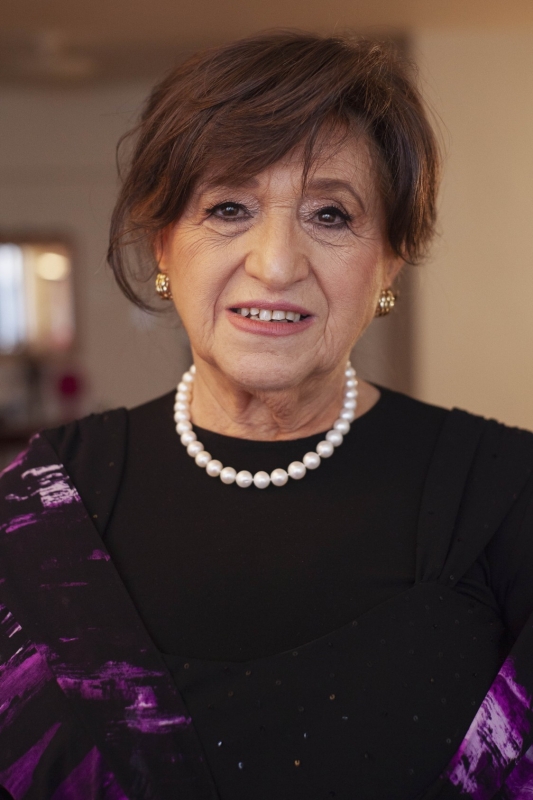Holocaust survivor Angela Orosz-Richt, one of the few children born in Auschwitz to survive, will speak Wednesday, Nov. 5, at 5:15 p.m. in the Nott Memorial.
Her talk, part of a Kristallnacht commemoration, is free and open to the public.
It is organized by Chabad at Union and co-sponsored by Alpha Phi Omega, Chi Psi, Delta Phi Epsilon, the Department of Political Science, Gamma Phi Beta, Hillel, the Office of Religious and Spiritual Life, the Religious Studies Program, Sigma Chi, Sigma Delta Tau, Sigma Phi and Theta Delta Chi.
This year marks the 87th anniversary of Kristallnacht (the Night of Broken Glass), considered by many to be the start of the Holocaust. The pogrom refers to Nov. 9-10, 1938, when German Nazi paramilitary forces attacked Jewish individuals and their property in a widespread campaign of hatred and violence. Smashed glass was strewn on the streets from the windows of looted and vandalized shops and synagogues. World War II broke out a year later when Germany invaded Poland.
The Nazi genocide killed six million Jews across Nazi Germany-occupied Europe.
According to the Montreal Holocaust Museum, Orosz-Richt was born in the Auschwitz concentration camp in December 1944. Her parents lived in Sárospatak (Hungary) until their deportation to Auschwitz. Her father, Tibor, was a lawyer and her mother, Vera, a teacher. Vera was three months pregnant when they were deported in May 1944.
Tibor was murdered in the camp in July, while Vera was put to work in the Kanada Kommando, sorting the belongings and clothing confiscated from prisoners at their arrival to the camp, according to the museum. She was later transferred to a road construction detail where she performed hard manual labor. She was then transferred to kitchen work.
Despite painful medical experiments carried out on pregnant Vera, the fetus survived. She delivered Angela with the help of a fellow inmate in an upper bunk of their barrack. Angela weighed two pounds and she was so weak that she did not cry. She went unnoticed until the liberation of the camp on January 27, 1945, according to the museum’s account.
“Angela’s story of courage, faith and resilience offers a rare and deeply moving first-hand account of life during and after the Holocaust,” said Laiky Rubin, adviser to Chabad.
The program also features Stephen Berk, the Henry and Sally Schaffer Professor of Holocaust and Jewish Studies. He will provide historical and contemporary perspective on the significance of Kristallnacht.
